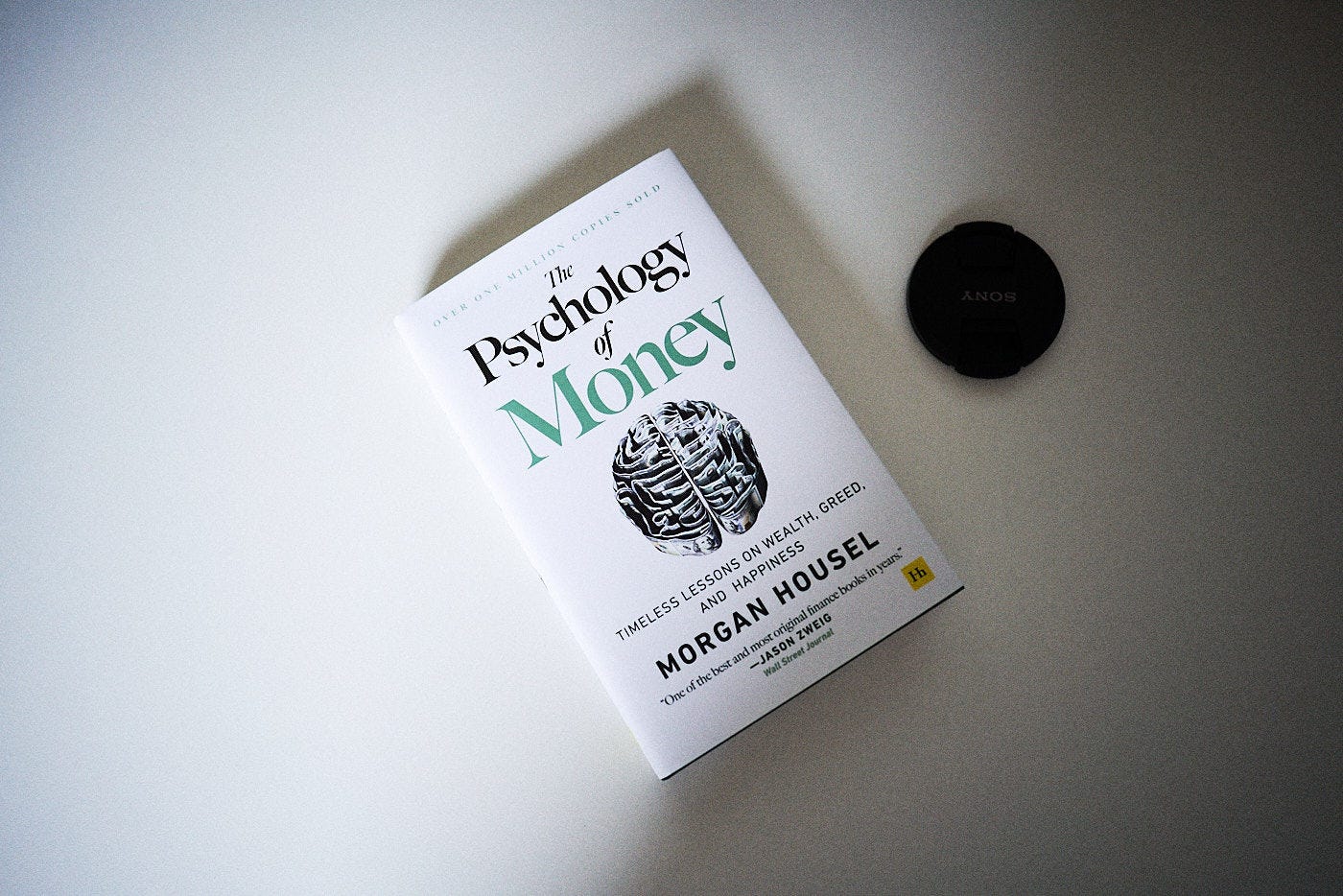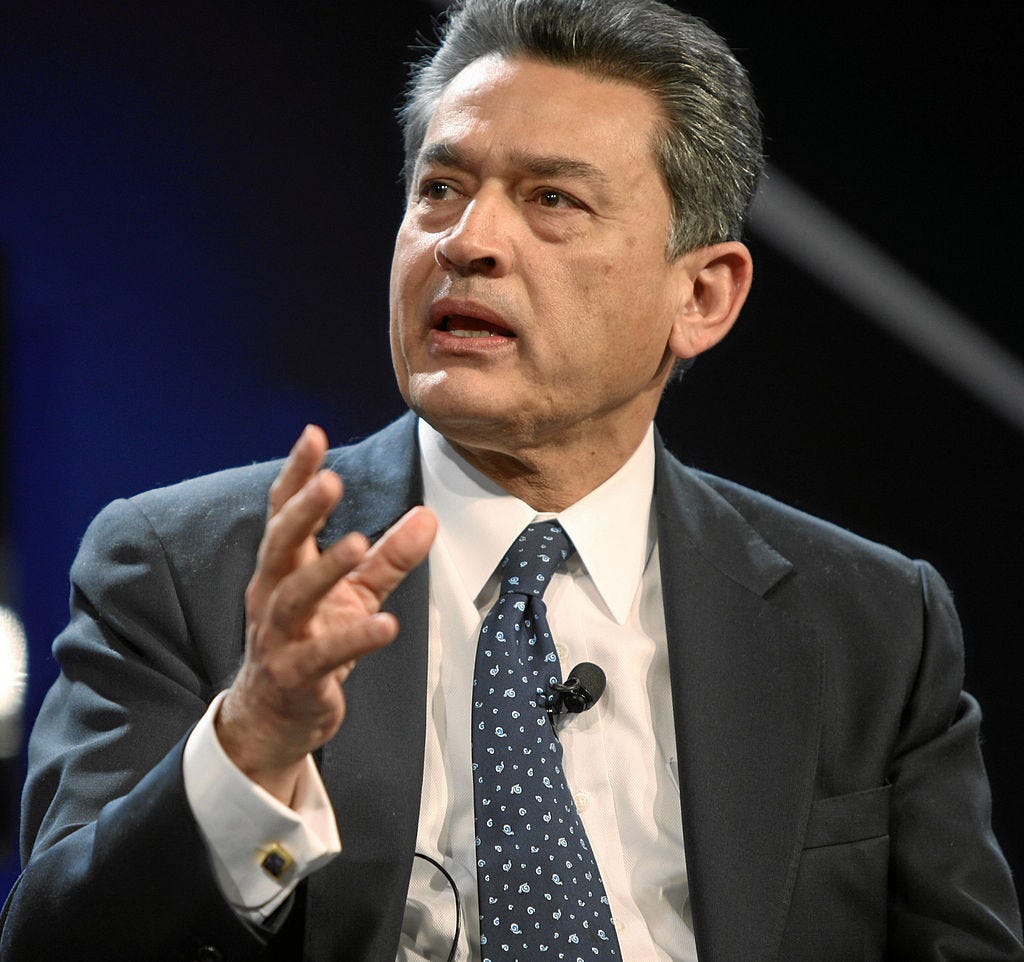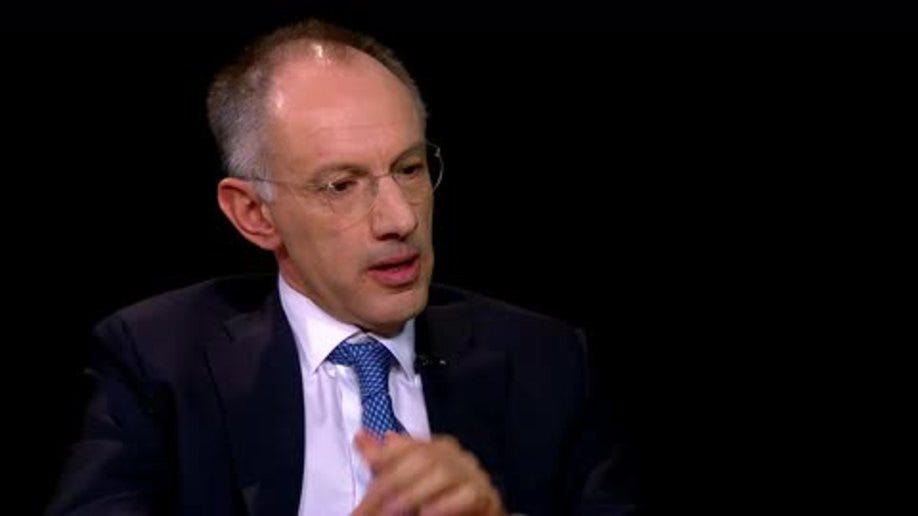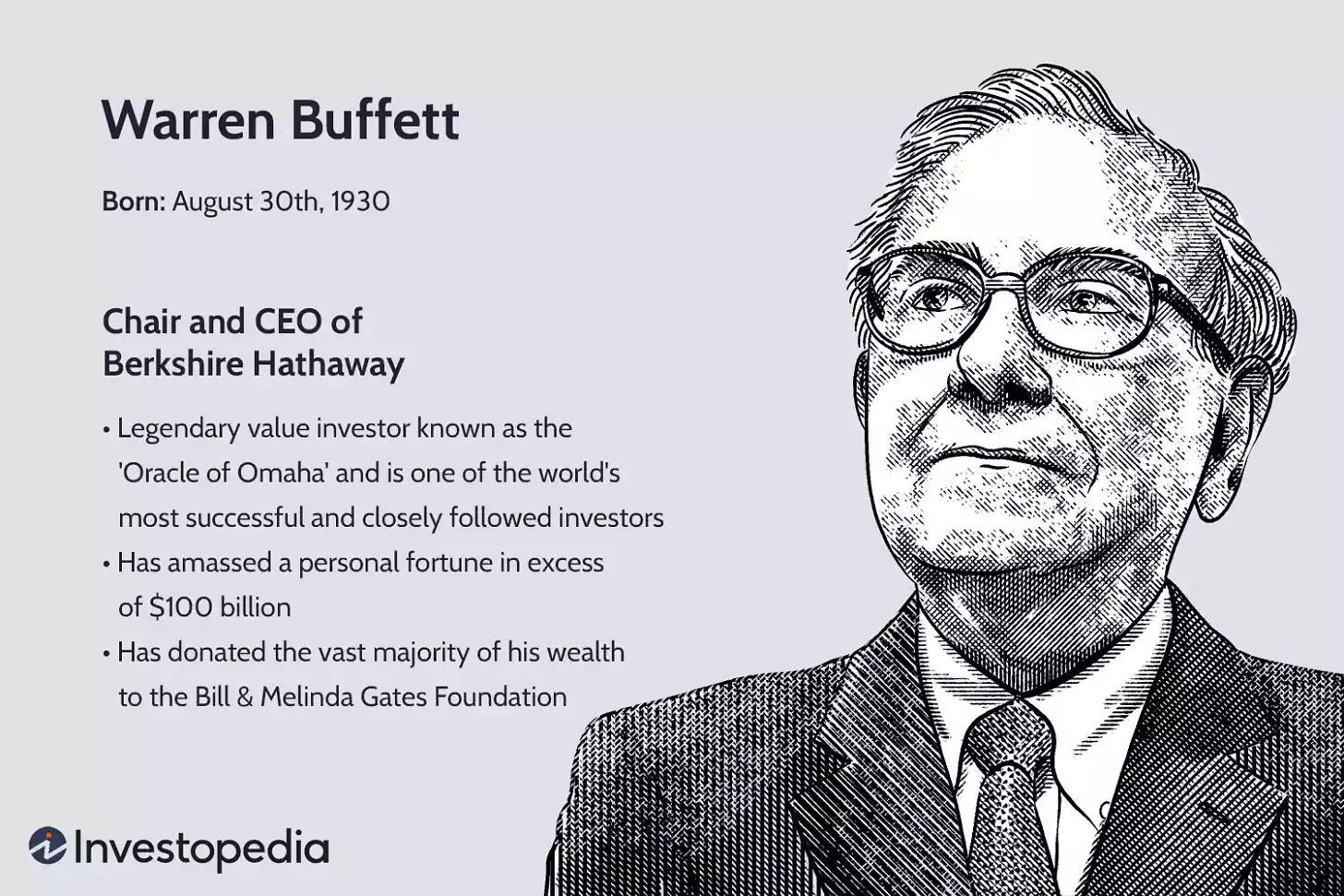Psychology of money - Book summary
Reviewing Morgan Housel's bestseller and relating his lessons to watch collecting
Yet another one of the 2021 ‘lost articles’ series… I got a book recommendation from a friend on Instagram a couple of years ago now, and decided to give it a whirl – I found it to be a very enjoyable read, particularly for the stories shared in this book.

Housel makes the point that financial know-how is actually less of a hard science than you might think. Unlike in other fields, when it comes to finance a random petrol station attendant with a high school education might make millions, while a celebrated, Harvard-educated finance executive goes bankrupt. It all boils down to behaviour. Housel explores why psychology has more to do with positive financial outcomes than our math skills. The key takeaways from the book were:
Financial knowledge doesn’t guarantee sustained wealth.
Both luck and risk play a part in your life and financial success.
Your life experiences form your view of the world and money.
Knowing when you have enough is a valuable lesson.
Making money requires one skill set, keeping money requires another.
Don’t let people with a different financial goal guide your financial decisions.
Financial advisers provide valuable information, but the final decision is up to you.
Many of these references to “money” can be replaced with “watches” in my opinion, and that’s why I decided to write this. So… I will try and summarise the book into key points, and then connect these key points to watches.
Financial knowledge doesn’t guarantee sustained wealth.
In 2014, a Vermont janitor and petrol station attendant named Ronald Read died at the age of 92, leaving behind a fortune of more than $8m. He hadn’t won the lottery or inherited any money. He put aside what money he could, invested it in established companies and let his wealth build over the years.
Conversely, a Harvard-educated finance executive who a business magazine highlighted as a success when he was in his 30s, went bankrupt. The one man’s success and the other’s failure had nothing to do with their financial knowledge. It boiled down to patience versus greed.
Only in the finance industry can human behavior result in such different outcomes. A trained surgeon will always perform better heart surgery than someone with no medical knowledge. In finance, you can know the rules of interest rates and corporate valuations, but your behavior – as well as luck – plays a larger part in your success than your knowledge.
Both luck and risk play a part in your life and financial success.
When asked what unknowable element of investing he’d like to know, economist Robert Shiller responded, “The exact role of luck.”
Bill Gates was just plain lucky that the high school he attended had a computer. A math and science teacher lobbied the school’s Mothers’ Club to use rummage sale proceeds to rent a computer. It was a one-in-a-million opportunity. Gates admits that without his experience in high school, Microsoft never would have existed.
Kent Evans was Gates’s classmate and close friend. He also was one of the lucky ones who worked alongside Gates in the school’s computer lab, but never became a partner in Microsoft because he died in a climbing accident before high school ended! The odds of this tragedy happening were one in a million. Gates himself admits that Evans would absolutely have been his partner in Microsoft, had he survived.

When asked what unknowable element of investing he’d like to know, economist Robert Shiller responded, “The exact role of luck.” While few people would deny that luck exists in investing, fewer would willingly point out individual people who have experienced that luck. If you indicate someone is lucky, you might seem petty. Believing your own good fortune is a result of luck rather than hard work can make you feel depressed.
This duality of luck and risk exists almost without thought. Someone else’s loss is due to bad decisions while your own loss is due to your taking a daring risk. A similar duality exists in customer service where clients are “always right” and, simultaneously, “don’t know what they want.”
“The line between bold and reckless can be thin. When we don’t give risk and luck their proper billing it’s often invisible.”
The point being made was for us to be wary of assuming hard work and judgment are the basis of all our financial results. When managing money, look for information in patterns and trends, rather than searching for insight in a magazine cover story about a billionaire.
Additionally, bear in mind that a few good stock purchases usually provide the majority of income. This means you can be wrong more often than you are right … and still come out ahead. Venture capitalists, for example, expect that out of 50 investments, 25 will fail, and one or two will do well enough to make their existence worthwhile and profitable.
Investing in start-ups seems risky, and many think that investing in large, stable companies is the safer choice. In truth, you are just as likely to lose – or win – betting on big public companies as start-ups. J.P. Morgan Asset Management looked at returns for the Russell 3000 Index – which consists of a wide swath of big, public companies – since 1980. It found that 40% of the stocks lost 70% and never regained their value!
Your life experiences form your view of the world and money.
A National Bureau of Economic Research study found that people’s experiences significantly influence their feelings toward money. If you were a young adult in a bull market, you were more likely to invest in stocks than people who grew up in a more sluggish one. Your experiences might lead you to make thoughtful decisions that may seem ludicrous to others. For a child of wealthy parents risk has a very different meaning than for a child of poor parents.
“People’s…investment decisions are heavily anchored to the experiences those investors had in their own generation”
In addition to the generational, cultural and financial differences between people, many aspects of personal investing are very recent additions. The 401(k) didn’t exist before 1978. Roth IRAs came on the scene in 1998. As with other experiences which shape your relationship with money, the choices you make as a result of your interaction (or lack thereof) with certain finance tools, means your financial decisions are often more personal than statistically rational.
Accepting that you have enough is a valuable lesson.
Emotional financial decisions can be devastating when you base them upon how much money others possess. People who aren’t satisfied with what they have can easily lose it all while grasping for more. Rajat Gupta, born in poverty in Kolkata, India, and former CEO of McKinsey, was worth $100 million in 2008. Not satisfied, he used insider information to make a quick $17 million. The Securities and Exchange Commission had an easy job convicting him and sending him to prison.

Bernie Madoff, convicted of running a Ponzi scheme for two decades, had a successful and legitimate investment company prior to his fraudulent actions. One aspect of his legal business made more than $25 million per year. He was, by any standard, incredibly wealthy. But he felt he didn’t have enough.
“The world is filled with people who look modest but are actually wealthy and people who look rich who live at the razor’s edge of insolvency”
In both cases, the men lost what they had because they wanted more. Achieving a financial goal and then making a higher one can become a never-ending process. Part of this issue stems from the fact that capitalism excels at creating envy.
Comparing your finances with other people’s is a losing battle. Feeling that you have enough, even if it’s less than someone else has, is the way to win.
Making money requires one skill set, keeping money requires another.
Taking risks is a necessary part of making money, but to hold on to your money, retain your “humility and fear.” Television journalist Charlie Rose once interviewed Michael Moritz, who leads the venture capital company Sequoia Capital. The firm has succeeded for four decades, unlike many others that collapsed by the wayside within a decade. Asked about the firm’s longevity, Moritz attributed it to the fear of going bankrupt. While the company must, by nature, take risks, Sequoia Capital didn’t assume that its past successes would reoccur in the future.

Be prepared and expect that your plans won’t come to fruition in the way your spreadsheet envisions. Providing a “margin of safety” allows you to have flexibility when the randomness of life, politics or economics affects your desired outcome. This strategy increases your chance of succeeding when taking a risk.
“If I had to summarize money success in a single word it would be ‘survival”
Some investors try to hedge by studying the past. While history provides information on unexpected happenings in the past, it doesn’t foresee the future. The reality is that new, never before experienced situations erupt constantly.
Don’t let people with a different financial goal guide your financial decisions.
How saving small amounts of money regularly can affect your eventual wealth is counterintuitive. It’s similar to the growth of hard drive storage. Over the past 70 years, hard drive storage has expanded by a factor of 30 million. Even as recently as 2004, Bill Gates questioned why Gmail users would need “a gigabyte of storage.”
Warren Buffett made his first investment 75 years ago. When he started his “serious investing,” he was a child of 10. At the age of 30, his net worth was $1 million. The goal is not to find that one-in-a-million stock, but to find investments with fairly good returns that you can hold for the long-term.
“A little growth serves as the fuel for future growth“

The phenomenon of bubbles in the market underscores what can happen when short-term thinking becomes widespread. Bubbles build and burst for many reasons, but greed plays a major part. When the dot-com and housing bubbles burst, they eliminated $6.2 and $8 trillion of wealth respectively. In addition to the greed factor, both situations involved people who changed their investment strategies based on actions of others who had completely different goals.
The concept that a stock has a “rational price,” isn’t rational. For short-term traders looking to cash in by the afternoon on stock purchased in the morning, paying $60 per share for Cisco stock in 1999 might have been a great option. This price reflected a 300% increase over the year. But for long-term investors, listening to day-trading pundits and buying accordingly was calamitous.
Financial advisers provide valuable information, but the final decision is up to you.
Financial advisers have crucial knowledge, including “universal truths in money.” Each individual, however, must decide what path to take for themselves. The following points can help you think about your goals:
Save money instead of showing it off – To create wealth, you have to save your money. This may require you to keep your ego in check. No matter what your income is, an unnecessary new car or huge house will hamper your future wealth.
Determine what risk you can take and still sleep at night – Higher risk often comes with greater returns. Some people want this. However, if you are risk adverse and your decision causes you restless nights of anxiety, then rethink your strategy.
Increase your investment’s timeline – This strategy is the best way to equalize losses and increase growth.
Make sure your money goals allow you freedom – An identified element of happiness is having control in your life. Even small savings can allow you freedom, such as the ability to stay home from work when you’re sick. Larger amounts of savings can mean the difference between taking a job you don’t want or waiting for one you would enjoy.
Stay humble – Remember that you’ll gain the admiration you want from “kindness and humility,” not from a new sports car.
Change your view of saving – Traditionally, you may have saved money for a specific purpose. The future can bring any number of unknown emergency situations. If you save for such unknowns, you’ll be better situated to handle them.
Calculate your risk – Risk can be rewarding over time, but risk that extends you too much can ruin you.
Know your own financial goals – Don’t allow other people, including your financial adviser or a TV pundit, make your financial choices. Ensure that the decisions you make are in line with what you want and need.
Conclusion and final thoughts
Let’s start with the key takeaways to make some specific connections to watch collecting.
Financial knowledge doesn’t guarantee sustained wealth – similarly, so-called ‘watch experts’ and dealers may not know what the hell they’re talking about. By all means, seek expert advice, but don’t forget to apply your own mind to the questions you are asking, and never assume that it must be true because some reputable dealer said so. As my buddy always says, “do your own research”. Just look at the recent Phillips auction scandal… who would trust Aurel Bacs now?
Both luck and risk play a part in your life and financial success – this is no different in the watch collecting world. So many collectors owned highly desirable steel models before the COVID-19 craze and price boom… same goes for indie collectors, who simply loved the brands and the watchmakers, and then suddenly found themselves with watches which have, in some cases quintupled in value! Then, came the market cooling which was triggered by Russia invading Ukraine, and compounded by the COVID-deficits… This will change over time, and current values are not guaranteed to persist forever – so buying with an “investment mindset” but without a clear time horizon (and rationale) for this timeline, is a fool’s errand (as I have said before).
Your life experiences form your view of the world and money – this too, applies in the watch world. Another topic I have written about, which is that you are constantly going to ‘reset’ your baseline view on price; perhaps starting out you think £1000 is a lot of money for a watch… this quickly seems trivial when you consider something for £5000 – and so it continues as your circumstances and budget allow – there is no ceiling, other than one’s own ability to earn money to spend on watches. This is why it is highly unfair to judge anyone else’s collection with your own set of biases and influences – you cant possibly know how they reached the point at which you observe them at any given point in time.
Knowing when you have enough is a valuable lesson – and this is the watch collector’s doom cycle – many collectors describe watches as a drug, or an insatiable addiction… we often say there is no end-game watch, and the only way to end the game is to die – however morbid, this is something which is perpetuated by platforms like Instagram, which makes people want to declare a new watch alert as they see others doing so – it’s worth taking a moment to appreciate what we have, and to acknowledge how we really don’t “NEED” more. Relates to a recent post about needs vs wants 🙂
Don’t let people with a different financial goal guide your financial decisions – this one applies to watches too, in that you can’t ask just any collector for their advice on your watch collection or your next purchase decision. My advice is to ask friends who have your best interests at heart, and who know you well enough to understand your tastes and preferences broadly. This way, they can ask you tough questions which help you decide whether you’re making the right call. It is also useful to frame your questions properly for the audience. Say you’re asking a billionaire collector who owns hundreds of watches, and has tried thousands of them, for their opinion about a particular model from a specific brand - do not ask “what do you think of X watch” - instead, be more thoughtful about it, and ask “I see you have A, B and C watch from this brand - can you perhaps talk about X watch, and tell me a little bit about how it compares with A, B, and C… wat are some of the pros and cons?” You get the idea, hopefully.
Financial advisers provide valuable information, but the final decision is up to you – same for watches; you can get all the advice in the world, but only you know how you feel … and as long as you have the data to back up your decision, go with your gut!
Anything you would add, as a watch collector? Anything you disagree with? Please join the conversation… in the comments: :)



Thanks for this excellent summary and review of this book! It is true that all the key points are applicable to watch collecting! We all need to know when we have enough watches, haha.
How did I miss this?!?
Love “Knowing when you have enough is a valuable lesson” - it’s a challenging lesson too.